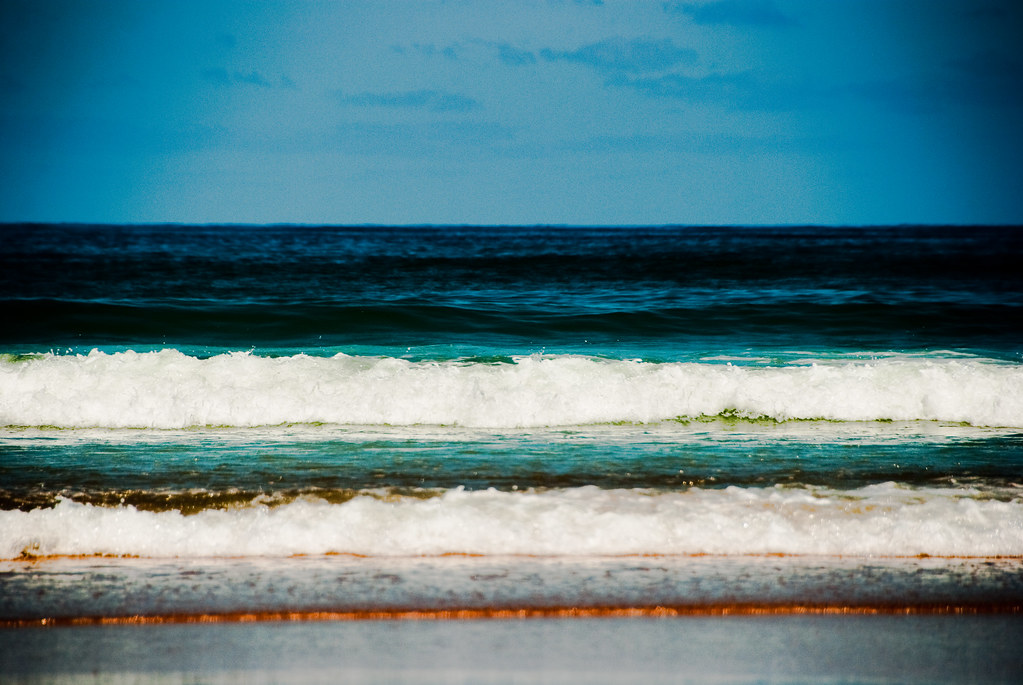
Daytona Beach, March 2010
I've been watching Earth Days, a documentary that aired last month on PBS' American Experience to mark the 40th anniversary of Earth Day. It's constructed of interviews with nine key figures in the history of the environmental movement, reflecting on their experiences and connection to it.
Cinematically, it feels like the PBS documentary that it is (although it did receive a limited theatrical release last year and boasts a restrained score from Michael Giacchino that sounds a lot like his softer music from Lost). It's not a Michael Moore piece of agit-prop, nor does it approach the intensity of an Errol Morris interrogation. It lets the people and archival footage speak for itself, and they have some fascinating things to say.
A substantial portion of the film is devoted to the connection between the environmental movement and the space program, and how the latter inspired the former. Stewart Brand, the environmental activist with a futurist streak and one of the people I most admire in the world today, talks at length about the impact of the first image of the whole earth sent back from the Apollo missions (a cultural sea change that he predicted). But he also has something to say about the ongoing, practical benefits of space exploration--something that Jacques Cousteau said about the oceans, and that is particularly timely as the Deep Horizon oil spill continues to spread in the Gulf of Mexico--and possibly beyond:
One peculiarity of the counterculture in the '60s was that it was inherently, really anti-technology. I think it thought technology came from government, it came from corporations, and we're going back to basics--we don't need technology. Except our hi-fis, of course. And our drugs. [laughs] And those can be--the more technically refined, the better. But by and large, technology was supposed to be bad.
So much of the counterculture disapproved of the space program. It was military guys with crewcuts. It was the government wasting money. Let's take care of things on earth before we leave it. All of this kind of rhetoric was out there--except for one guy: Jacques Cousteau, the oceans guy. He had a better sense of the sphericity of the earth probably than any other surface-bound person at that time.
What he knew was that the oceans--two-thirds, three-quarters of the planet--you could not monitor. And yet, terrible things were happening to it. So his sense was that you had to have satellite imagery and people looking down at the earth from outside in order to protect the oceans.
He just said, we gotta get out there.
Just this week, the astronauts on board the International Space Station reported on the Deepwater Horizon spill:
It is a heartbreaking sight from space, station astronauts said.
"Just 30 minutes ago we passed over the Mexican Gulf and we took a lot of pictures of this oil spot," space station commander Oleg Kotov, a Russian cosmonaut, told reporters on Earth via a video link.
"It looks very scary," Kotov said. "It's not good. I really feel ... not good about that."
Also visible from their vantage point on the station is ash from the massive ongoing eruption of Iceland's Eyjafjallajökull volcano.
"Yes, we can see ash above the Europe, especially in the evening hours," Kotov said. "We cannot see the volcano itself. Many ecological problems we can observe and monitor from this space station. It's very useful for this perspective."
You can watch Earth Days, the entire film, at PBS' American Experience site.
My blog / RSS feed
My Flickr photostream / RSS feed
My Flickr map
0 comments:
Post a Comment